dp0609 - FEP - Universidade do Porto
dp0609 - FEP - Universidade do Porto
dp0609 - FEP - Universidade do Porto
Create successful ePaper yourself
Turn your PDF publications into a flip-book with our unique Google optimized e-Paper software.
are higher if a firm is identified as having artificially inflated reported earnings<br />
as compared to a situation where the effect was to reduce profits.<br />
Regarding the risk of an excessive power concentration, it is<br />
internationally recommended (e.g., FRC, 2003; OECD, 2004) that a<br />
separation is made between the Chairman and the Chief Executive Officer<br />
(CEO) as a necessary condition for the monitoring and management roles to<br />
be articulated in a simultaneous and efficient way. By separating those two<br />
functions, one might also avoid the existence of excessive power in the hands<br />
of a single individual within an organization.<br />
Dechow et al. (1996) report that firms identified by the SEC as<br />
earnings-manipulators usually have a corporate governance structure<br />
characterized by executive directors <strong>do</strong>minating the Board, Chairmen that<br />
simultaneously act as CEOs, and are unlikely to have an audit committee.<br />
The creation of an audit committee within the Board of Directors with a<br />
particular set of characteristics can potentially lead to better financial reporting<br />
quality. Agrawal and Chadha (2005) find evidence that the likelihood of an<br />
income restatement is lower if an independent member is present in the audit<br />
committee with accounting or finance professional expertise. In a sample of<br />
financially distressed companies, Carcello and Neal (2000) report that a larger<br />
proportion of non-independent members in the Audit committee leads to a<br />
lower probability that the auditor will issue a modified opinion expressing<br />
going-concern worries, lending support to the argument that such committees<br />
might sometimes suffer from lack of independence. Regarding the way<br />
members of the audit committee interact with external auditors in settling<br />
disagreements over certain accounting options, the results reported by<br />
DeZoort and Salterio (2001) suggest that increased audit committee<br />
members’ independence and audit-reporting knowledge are positively<br />
associated with auditor support in an auditor-management dispute.<br />
Conversely, concurrent board and management experience result in less<br />
support for the auditor.<br />
Two further empirical studies show, however, that the existence of an<br />
audit committee <strong>do</strong>es not necessarily lead to better financial reporting quality.<br />
In fact, Peasnell et al. (2004) <strong>do</strong> not find evidence that the presence of an<br />
audit committee reduces the level of either income-increasing or income–<br />
6


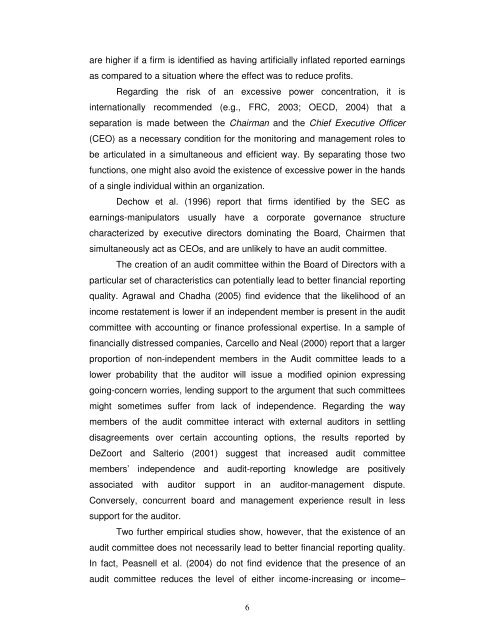

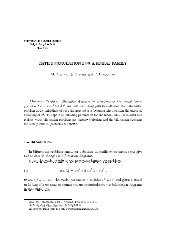
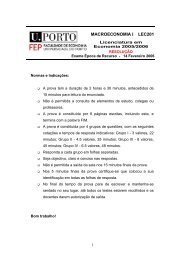
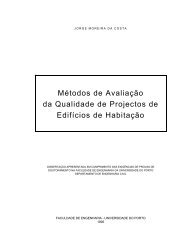

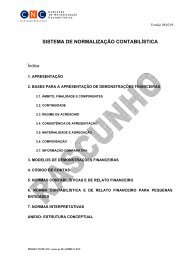
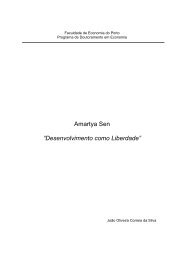
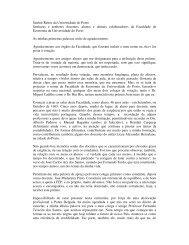
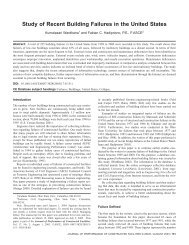
![Republica [Popular] de Moçambique. As Alterações Toponímicas e ...](https://img.yumpu.com/20789614/1/184x260/republica-popular-de-mocambique-as-alteracoes-toponimicas-e-.jpg?quality=85)




